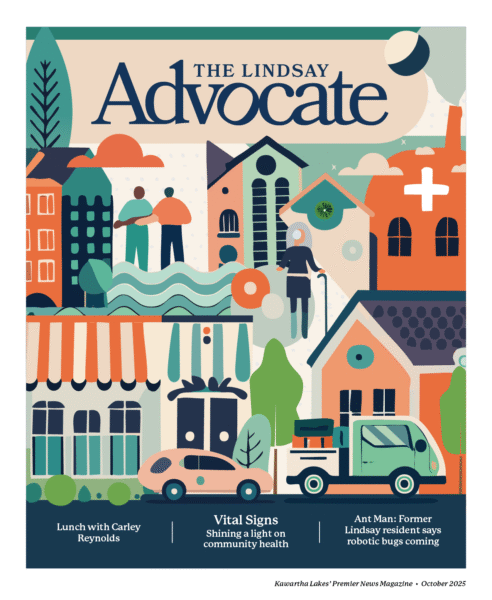Becoming a better human
Roderick Benns is the publisher of The Advocate. An award-winning author and journalist who grew up in Lindsay, he has written several books including Basic Income: How a Canadian Movement Could Change the World.

I am writing this column at the end of March, during the monumental ice storm. Jack Frost’s parting shot has robbed most of us of precious electricity, while scarring our landscapes like a Homeric battle.
A day before the power died, the sound of cracking branches and trees being hauled down kept most of us awake, creating unity in the uncertainty of fitful, icy shatters.
In my old, central Lindsay home, I am fortunate to have a wood burning stove in my living room. I am not much of an outdoorsman, but I did grow up in a tiny home that mostly relied on heat from a woodstove. So, in one of the few gifts my father ever gave me, I know how to chop wood and tend a fire. For the first time ever, I am using my woodstove to boil water to make myself green tea. (In some way, this has been deeply satisfying, and it somehow tastes better than usual.)
Our cover story this month, written by Sarah Fournier, is on the generations and how they all see the world through different lenses. My late grandmother, born in 1916, only got electricity to her rural Apsley-area home in the early 1950s. Her parents never experienced the miracle of a flushing toilet or the precious glow of a lightbulb.
My youngest, at 18, has never known a world without the internet.
And the youngest generation among us, Generation Alpha (born after 2010) will have never known life without artificial intelligence.
Yet for now, draped in irony (and a cozy couch blanket), I write by candlelight. Some online voices, via Facebook mostly, complained more than they were grateful, and yet they were truly drowned out by the number of people who surrendered to their better angels, offering hot showers, food, or charging stations to those without.
The pace of accelerated learning and discovery is now unparalleled in human history. Of course, each generation says this. And yet this time, anchored by AI, invention itself is now iterative and generative, marking a new frontier in our world’s growth. As Reid Hoffman and Greg Beato write in Superagency, “A machine that can think like a human — strategically, abstractly, and even creatively, at the speed and scale of a computer — will obviously be revolutionary.”
The question isn’t what our AI future will do for us in terms of new technology, but whether it can free us to better focus on what unites us. Can we offload routine and mundane tasks to AI, to more easily focus on what truly defines our humanity: creativity, empathy, problem-solving, and interpersonal connections. If we can seize this agency for ourselves, as the authors argue, AI can free us from the “tyranny of the everyday,” allowing us to engage in activities that cultivate our human spirit.
On a technical level, maybe AI will ensure we won’t lose power as often as we do. But more importantly, maybe we’ll take this gift of time and learn what inspires us – and what connects us – and just become better human beings.





